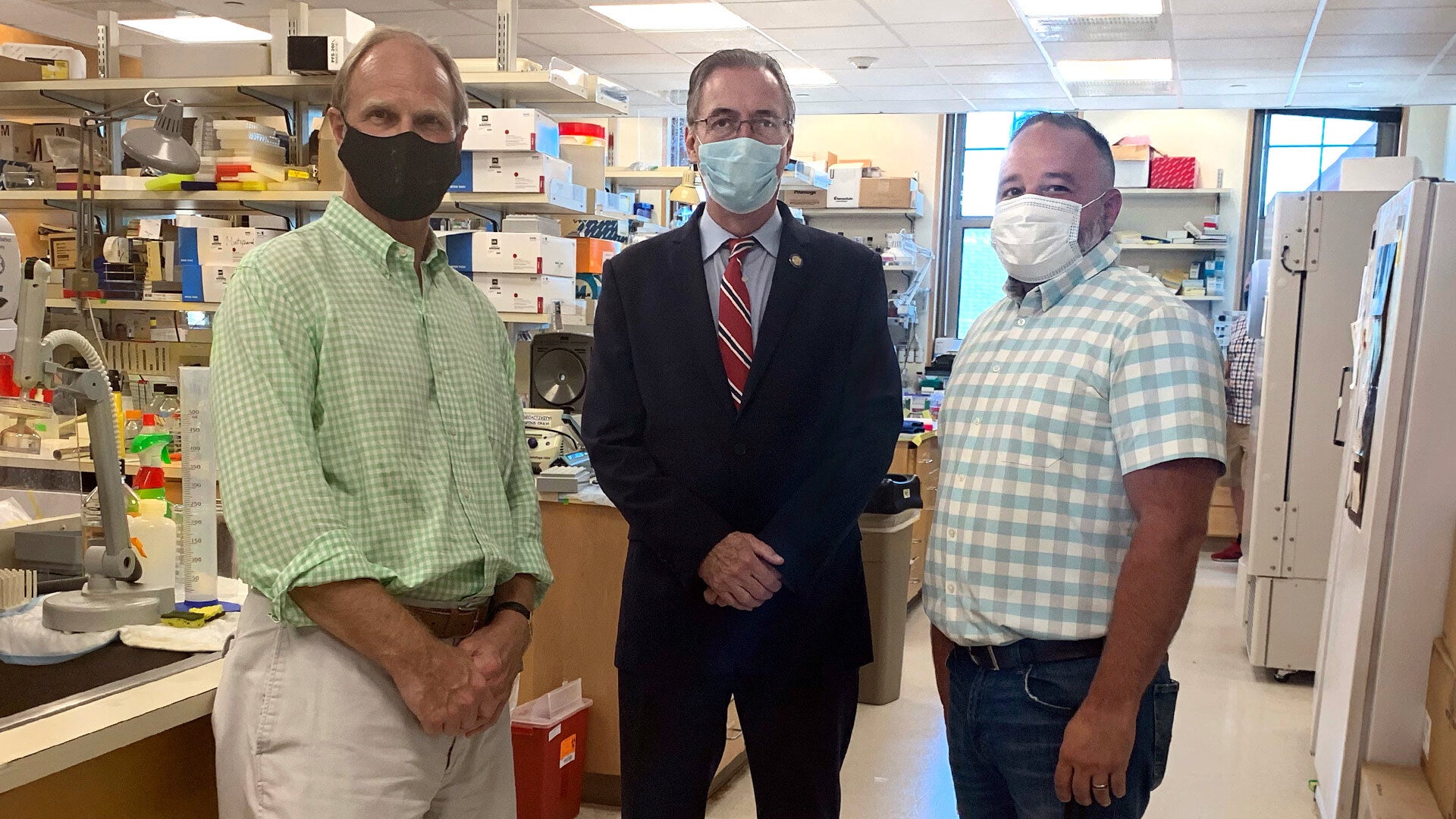Like many Long Island institutions and homes, Cold Spring Harbor Laboratory (CSHL) was affected by the extensive outages due to Tropical Storm Isaias. Lack of timely and accurate communication from PSEG Long Island, the local power company, caused CSHL to rely on its own emergency generators. That put tens of millions of dollars of active biomedical research, including COVID-19 research, at risk. Steve Monez, CSHL’s chief facilities officer, is advocating for PSEG to develop better communications protocols (pdf) to prevent future damages and loss of research during outage situations.
On August 18th, NY State Senator James Gaughran held a press conference at CSHL, where he called on PSEG to be held accountable for their lack of communication. “CSHL is critical infrastructure on Long Island and must be considered as such,” Senator Gaughran said. “As we gear up for what public health experts are projecting is going to be an increase in COVID-19 cases this fall, and what scientists are warning is going to be an active hurricane season, we must continue demanding better from PSEG.” CSHL is grateful for the Senator’s help in bringing attention to this issue and for advocating for better communication that will protect crucial research.
Monez testified at the Joint Public Hearing on Utility Response to Tropical Storm Isaias on August 20th, discussing how the aftermath of the storm was exacerbated by the inaccurate power-restoration time estimates provided by PSEG. He also advocated for Senate Bill S6868, sponsored by Senator Gaughran, which will create a process for the Public Service Commission to require compliance and level a civil penalty, including the revocation of a service provider’s authority to operate within the state, if the provider does not follow the commission’s orders related to fraud, abuse, and mismanagement.
Written by: Sara Roncero-Menendez, Media Strategist | publicaffairs@cshl.edu | 516-367-8455
